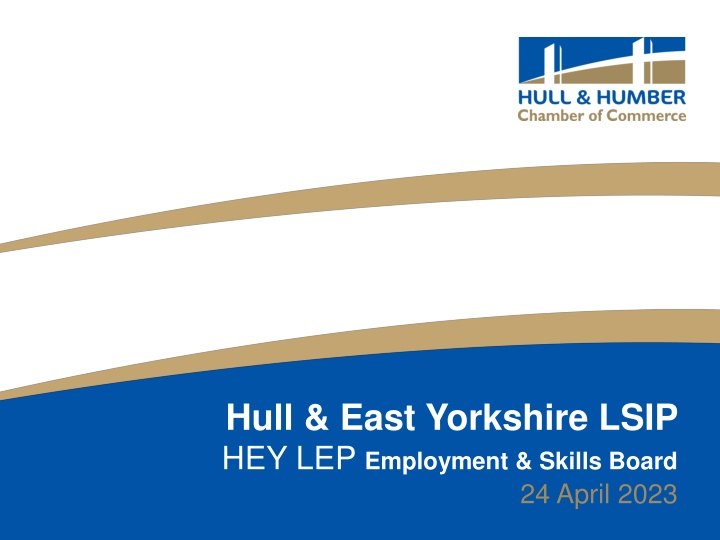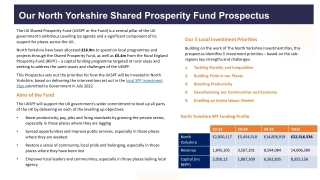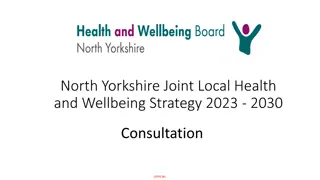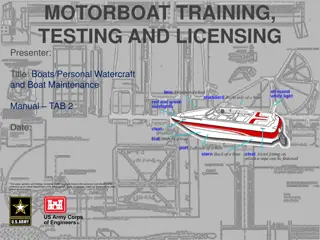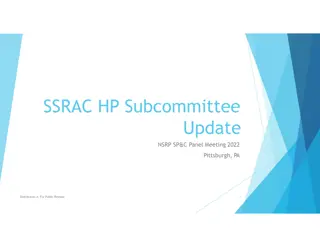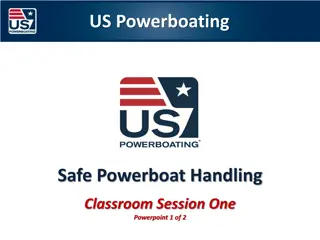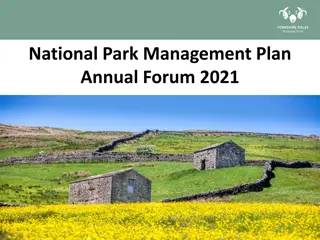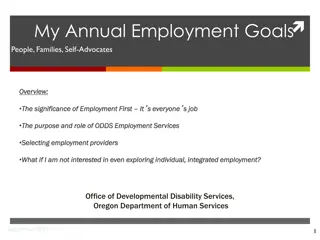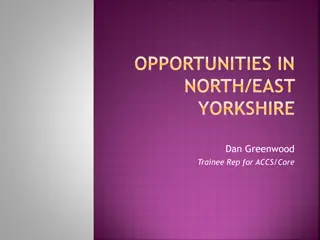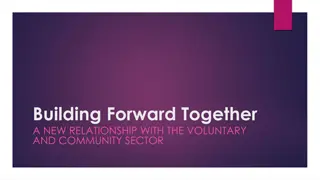Hull & East Yorkshire LSIP: Employment & Skills Board Priorities
The Hull & East Yorkshire LSIP LEP Employment & Skills Board outlines key priorities including aligning careers guidance with available opportunities, enhancing work readiness for young people, supporting NEETs, and promoting employability skills. Emerging priority sectors include construction, engineering, agri-skills, manufacturing, health & social care, and digital initiatives. The format of priorities emphasizes employer needs, green economy focus, and funding sources.
Download Presentation

Please find below an Image/Link to download the presentation.
The content on the website is provided AS IS for your information and personal use only. It may not be sold, licensed, or shared on other websites without obtaining consent from the author.If you encounter any issues during the download, it is possible that the publisher has removed the file from their server.
You are allowed to download the files provided on this website for personal or commercial use, subject to the condition that they are used lawfully. All files are the property of their respective owners.
The content on the website is provided AS IS for your information and personal use only. It may not be sold, licensed, or shared on other websites without obtaining consent from the author.
E N D
Presentation Transcript
Hull & East Yorkshire LSIP HEY LEP Employment & Skills Board 24 April 2023
Generic Priorities Alignment of careers guidance with opportunities available. Improving knowledge amongst teaching professionals of opportunities available. Ensuring young people are work ready . Increased support for NEETs. Ensuring there are sufficient numbers of educational teaching professionals (particularly within the priority sectors). Embedding employability skills, digital skills and work experience further in curriculum. 2
Generic Priorities cont. Supporting employers in assessing their future skills & occupational needs. Improving knowledge of provision available. User-friendly language & terminology. Improving knowledge of what Net Zero means for your business. More bite-size and modular provision. Incentivizing investment in training. Reducing barriers to apprenticeships. 3
Emerging Priority Sectors 1. Construction. 2. Engineering Construction. 3. Agri-skills. 4. Manufacturing. 5. Health & Social Care. 6. Cross-cutting themes of Digital, Net Zero & Soft Skills. 4
Format of the Priorities where possible. Employer Need Provisional Priority Green Economy Additional Need Possible Funding Sources e.g. Occupations e.g. Types of courses (apprenticeships, T Levels, Boot camps) e.g. Level of knowledge, course add-ons, full occupations. e.g. Employer, LSIF, innovation, AEB. 5
Engineering Construction incl. Offshore Willingness to adapt to changes. The right professional disciplinary competencies (employability skills). Increased requirement for data science, coding and robotics skills. Background in STEM subjects. Misconceptions of opportunities within the sector. Challenges in recruitment & retention. 6
Construction Key occupations: Other construction professionals and technical staff (1470 per year); Non-construction professional, technical, IT and other office- based staff (390 per year); and Plasterers (330 per year). Reported key skills: employability skills, specifically leadership & managerial. technical, practical or occupation specific. Consideration to Yorkshire & Humber needs. 7
Manufacturing Attractiveness of the industry. Digitisation and automation, requiring higher levels of IT. Ageing workforce. Key competencies for the jobs include ability to learn and attitudes/willingness to shift work, working long hours, and attitudes towards wearing PPE. Lack of understanding of career opportunities. Hard to fill vacancies are highest in manufacturing. 8
Agri-skills Demand for roles across the spectrum, ranging from professional roles (eg agronomy, specialist solicitors) to managerial roles and skilled labour (eg crop spraying) through to broader trades and manual occupations. Emerging requirements relating to Net Zero. Up-skilling for automation, robotics and AI. Professional disciplinary competencies. Finding the right people. Further work required. 9
Health & Social Care Generational gap with digital skills/capabilities. Recruitment challenges due to geography, transport links and attracting apprentices. Increase Dementia awareness, mental health, care for the vulnerable and the elderly and safeguarding knowledge. Behavioural attributes for example: self assessment & self regulation in public and private domains and emotional resilience Further engagement needed with NHS regarding specific occupational needs. 10
Digital Employer Need Microsoft applications Potential Actions Essential digital skills qualifications within education system Essential digital skills qualifications within education system Bespoke training Social Media Management specific software Marketing and business Bite size and modular provision Cyber Security Facilitation via Skills Bootcamps / Essential digital skills qualifications within education system Bite size and modular provision Online sales Adaptation abilities to emerging digital technologies Bespoke training / Bite size and modular provision 11
Net Zero Employer Need Up-skilling technology Potential Actions Understanding green technology short course for emerging green Up-skilling for clean energy & fuel markets Understanding clean energy and fuel markets short course Net Zero / Low Carbon transition skills Understanding green technology short course Addressing language barriers for Net Zero requirements understanding the implication of net zero and decarbonisation policies Further work to be developed by the LSIP / LEP / Local Authorities collaborative approach needed / 12
Professional Disciplinary Competencies Employer Need Prioritisation of tasks within settings to deliver solutions. Work Ethic Potential Actions These Apprenticeships/FT 16 to 19.We want to ensure they are incorporated into all occupational programmes and that a short course programme for existing employees is considered skills are already covered in Communication Literacy Numeracy Leadership & managerial Management workshop / Bite size and modular provision/Up-skilling Apprenticeships Management workshop / Bite size and modular provision/Up-skilling Apprenticeships Organisation 13
What happens next? Working with Colleges, ITPs & stakeholders on how to achieve targets. Work with neighbouring LSIPs to consider shared priorities. Maintain engagement with employers. Create the LSIP Report. Approval by Secretary of State (expected before Summer recess). Stage 2 (July 2023 March 2025): Review & Monitoring of the LSIP. 14
Our plans for Stage 2 Employer engagement Employer Forums Mobile app Short surveys 1-2-1 Dedicated website to be developed Establish sector specific sub-groups. Regular meetings with Stakeholders, Colleges, Providers and ITPs. Utilisation of existing groups/forums Monitoring beyond our priority sectors. 15
Questions? 16
Further comments Email: h.crookes@hull-humber-chamber.co.uk Growing your business, building our economy 17
